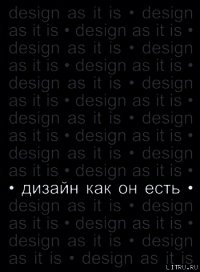The Innovators: How a Group of Inventors, Hackers, Geniuses, and Geeks Created the Digital Revolutio - Isaacson Walter (книги полностью .txt) 📗
Like Steve Jobs and Alan Kay, Larry’s other love besides computers was music. He played the saxophone and studied composition. During summers, he went to the famous music camp at Interlochen in northern Michigan. It had a method for crowdsourcing the rank of each kid: at the beginning of camp, kids were assigned chairs in the orchestra, and anyone could challenge the person a seat above them; the two competitors were given a selection of music, and all of the other kids would face the other direction and then vote on who sounded better. “After a while, things would kind of calm down, and everyone would kind of know where they were,” he said.120
Page’s parents not only taught at Michigan but had met as students there, so they were only half joking when they told him that he would go there as well. He did. He made a point of majoring in business as well as computer science, partly because of the cautionary tale of Tesla, who could invent but not commercialize. In addition, he had a role model in his brother, Carl, nine years older, who after college became a cofounder of an early social network company that was later sold to Yahoo! for $413 million.
The college course that made the greatest impression on him, Page said, was one on human-computer interaction taught by Judith Olson. The goal was to understand how to design interfaces that were easy and intuitive. Page did his research paper on the display of the Eudora mail client, estimating and then testing how long it would take to perform various tasks. He discovered, for example, that command keys actually slowed people down by 0.9 second compared to using a mouse. “I feel like I developed an intuition for how people will interact with a screen, and I realized those things were pretty important,” he said. “But they’re not well understood, even to this day.”121
One summer during his college years, Page went to a camp run by a leadership training institute called LeaderShape. It encouraged students to have a “healthy disregard for the impossible.” The institute inculcated in him a desire, which he would indulge at Google, to launch projects that others considered to be on the borderline between audacious and insane. In particular, both at Michigan and later, he pushed futuristic ideas for personal transportation systems and driverless cars.122
When it came time to go to graduate school, Page was rejected by MIT but accepted by Stanford. That was fortuitous; for someone interested in the intersection of technology and business, Stanford was the place to be. Ever since the Stanford grad Cyril Elwell had founded Federal Telegraph in 1909, tech entrepreneurship was not merely tolerated but expected there, an attitude that was reinforced when the engineering dean Fred Terman built an industrial park on university land in the early 1950s. Even among the faculty, the focus was on startup business plans as much as on scholarly publications. “That’s the kind of professor I wanted, one who has one foot in industry and wants to do crazy stuff that’s world-breaking,” Page said. “A lot of Stanford computer science professors are that way.”123
At the time, most other elite universities emphasized scholarly research and avoided commercial endeavors. Stanford led the way in regarding the university not just as an academy but as an incubator. Among the companies spawned by Stanford were Hewlett-Packard, Cisco, Yahoo!, and Sun Microsystems. Page, who would eventually add the biggest name of all to that list, believed that this outlook actually improved the research. “I think the productivity of pure research was a lot higher, because it had a real-world grounding,” he maintained. “It’s not just theoretical. You want what you’re working on to apply to a real problem.”124
As he was preparing to enroll in Stanford’s graduate school in the fall of 1995, Page participated in an orientation program that included a day in San Francisco. His guide was a gregarious second-year grad student named Sergey Brin. Page was naturally quiet, but Brin kept peppering him with opinions, and soon they were arguing about topics ranging from computers to urban zoning. They hit it off perfectly. “I remember thinking he was pretty obnoxious,” Page admitted. “That’s still the case. And maybe vice versa.”125 Yes, the feeling was mutual. “We both found each other obnoxious,” Brin conceded. “But we say it a little bit jokingly. Obviously we spent a lot of time talking to each other, so there was something there. We had a kind of bantering thing going.”126
Sergey Brin’s parents were also academics, both mathematicians, but his childhood was very different from Page’s. Brin was born in Moscow, where his father taught math at Moscow State University and his mother was a research engineer at the Soviet Oil and Gas Institute. Because they were Jewish, their careers were curtailed. “We were quite poor,” Sergey told the journalist Ken Auletta. “My parents, both of them, went through periods of hardship.” When his father applied to emigrate, he and his wife lost their jobs. Their exit visas came through in May 1979, when Sergey was five. With the help of the Hebrew Immigrant Aid Society, they settled in a working-class neighborhood near the University of Maryland, where his father got a job as a math professor and his mother became a researcher at the nearby NASA Goddard Space Flight Center.
Sergey went to a Montessori school, where independent thinking was nurtured. “It’s not like somebody is telling you what to do,” he said. “You have to plot your own path.”127 It was something he shared with Page. When asked later whether having parents who were professors was a key to their success, they both cited going to Montessori schools as a more important factor. “I think it was part of that training of not following rules and orders, and being self-motivated, questioning what’s going on in the world and doing things a little bit differently,” Page contended.128
Another thing Brin shared with Page was that his parents gave him a computer when he was very young, a Commodore 64 for his ninth birthday. “The ability to program your own computer was much more accessible than it is today,” he recalled. “The computer came with a built-in BASIC interpreter,VII and you could right away start writing your own programs.” In middle school, Brin and a friend wrote programs that tried to simulate artificial intelligence by carrying on a text conversation with the user. “I don’t think that kids starting out with computers today get as welcome of an entry to programming as I did.”129
His rebellious attitude toward authority almost got him in trouble when his father took him back to Moscow for a visit when he was turning seventeen. Seeing a police car, he started throwing pebbles at it. The two officers got out of the car to confront Sergey, but his parents were able to defuse the situation. “My rebelliousness, I think, came out of being born in Moscow. I’d say this is something that followed me into adulthood.”130
Among the books that inspired Brin were the memoirs of the physicist Richard Feynman, who touted the power that comes from joining art to science the way that Leonardo da Vinci did. “I remember he had an excerpt where he was explaining how he really wanted to be a Leonardo, an artist and a scientist,” said Brin. “I found that pretty inspiring. I think that leads to having a fulfilling life.”131
He was able to graduate from high school in three years and do the same at the University of Maryland, where he got an undergraduate degree in math and computer science. For a while, he and his fellow computer geeks liked to hang around on the Internet’s bulletin boards and chat rooms, until he got bored with “ten-year-old boys trying to talk about sex.” He then got involved in the text-based online games known as Multi-User Dungeons, writing one of his own that involved a mailman who delivered explosive packages. “I spent enough time MUDding to think it was cool,” Brin recalled.132 In the spring of 1993, his final year at Maryland, he downloaded the Mosaic browser, which Andreessen had just released, and became mesmerized by the Web.



